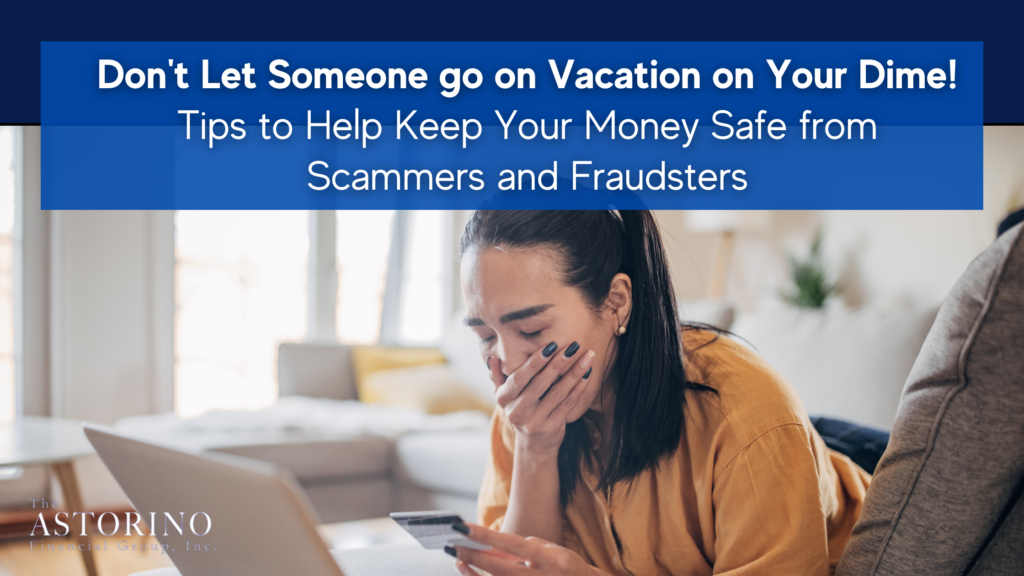
Don’t Let Someone Go on Vacation on Your Dime: How to Keep Your Money Safe from Scammers
Technology continues to grow and evolve, allowing us to stay connected and perform many daily tasks from home. There is a drawback to technology, however. It often leaves us more vulnerable to scammers who hide behind the anonymity that technology provides and find ways to scam us out of our hard-earned money. Work towards keeping your money safe and stave off scammers by following the tips below.
1. Know How to Spot a Scammer
While some scams are apparent, others are more difficult to spot. Most scammers will claim to be from an organization familiar to you, such as the IRS, Social Security, a utility company, or a well-known charity. Many even go as far as mimicking the name of a known company or entity on your caller ID, texts, or email so that you will answer them. Other signs that you may be dealing with a scammer are them pressuring you to act immediately or asking for payment with unconventional or non-secure methods.2
2. Don’t Open Emails if You Don’t Recognize the Sender
Clicking links through emails is one of the easiest ways for scammers to get your personal information or direct you to a fake site for payment. If you don’t recognize the sender or are unsure, you may try contacting the company directly via phone to see if they have sent the email. If an email uses a common company name, you may want to click on the name. This will show you to see the actual address the email is coming from, which will often not have the company tag at the end.1
3. Prioritize Updating Passwords Regularly
Scammers will often work by obtaining your passwords and using them to lock you out of your account, so they may use it or obtain private or financial information from you. Always be sure to choose passwords that are more difficult and take the time to update them every six months.1
4. Keep Up With Operating System and Security Updates
While it may seem like you are constantly getting requests to install updates on your electronic devices, doing them is vital. They often include security patches and updates that are designed to reduce your cyber-attack risk.2
5. Block Unknown Callers and Emails
If you receive unsolicited emails, texts, or phone calls, it may be wise to block them. By blocking them, you will be less likely to accidentally click on links that could be dangerous and also enjoy fewer useless messages.2
6. Don’t Give Out Personal or Financial Information to Anyone You Did Not Request Services From
Legitimate companies will not contact you and ask for identity or financial information unless they are responding to a request from you. This means you should not provide driver’s license numbers, Social Security numbers, bank account numbers, or credit card numbers unless you have initiated contact with the company.1
Important Disclosures:
The opinions voiced in this material are for general information only and are not intended to provide specific advice or recommendations for any individual.
All information is believed to be from reliable sources; however, LPL Financial makes no representation as to its completeness or accuracy.
This article was prepared by WriterAccess.
LPL Tracking #526895
Footnotes:
1 Avoiding Scams and Scammers, FDIC.gov, https://www.fdic.gov/resources/consumers/consumer-news/2021-10.html
2 How To Avoid a Scam, Consumer, FTC.gov, https://consumer.ftc.gov/articles/how-avoid-scam
Sources
https://www.fdic.gov/resources/consumers/consumer-news/2021-10.html
https://consumer.ftc.gov/articles/how-avoid-scam



